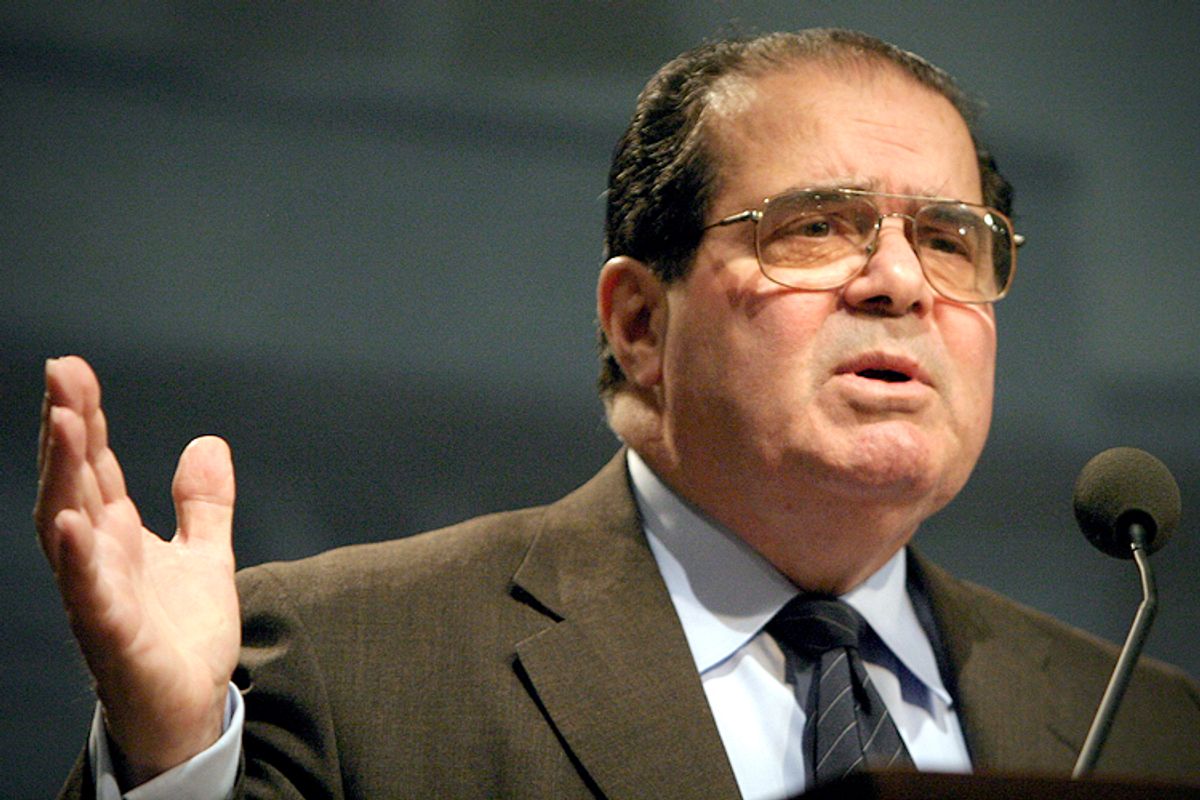In the wake of the attack on Pearl Harbor, as war loomed and hysteria spread, the U.S. government committed one of the greatest crimes of the New Deal era by sending more than 100,000 people of Japanese heritage into internment camps.
This episode has long been considered shameful, and the Supreme Court decision that allowed it, Korematsu v. United States, is one of the worst the high court has ever handed down.
Yet despite the widespread agreement that Japanese internment was egregious, Supreme Court Justice Antonin Scalia, while speaking to a group of law students at the University of Hawaii, warned that a decision like Korematsu could very well happen again.
"Well of course Korematsu was wrong," Scalia said. "And I think we have repudiated in a later case. But you are kidding yourself if you think the same thing will not happen again."
Scalia blamed the Korematsu decision on "panic about the war and the invasion of the Pacific and whatnot," and argued that these influences are hardly exclusive to the America of the recent past.
"That's what happens," said Scalia. "It was wrong, but I would not be surprised to see it happen again, in time of war. It's no justification, but it is the reality."
In 2008, the Supreme Court released one of the landmark decisions of the war on terror era, Boumediene v. Bush, which established that prisoners held at Guantanamo Bay had a right to habeas corpus and that the Military Commissions Act of 2006 abridged that right and was thus unconstitutional. It was a 5-4 decision, and Scalia was one of the four justices who chose to dissent.



Shares